Catalyzing the potential of our time featuring Robert Smith and Darren Walker
Transcript
[Catalyzing the potential of our time. Robert Smith, founder, chairman, and CEO, Vista Equity Partners. A Black man wearing a white shirt, vest, and tie. Darren Walker, president, Ford Foundation. An African American man wearing glasses and a light blue dress shirt with gray pants.]
ANNOUNCER: Please welcome Robert Smith and Darren Walker.
[applause]
DARREN WALKER: So, my friend Robert F. Smith, on some levels, I wasn’t surprised when I heard what you did, because I’ve known you to be just enormously generous. Whenever I have called to ask for anything, you—whether it’s paying for somebody’s funeral, whether it’s a scholarship, whether it’s a transformational gift to Carnegie Hall, to Cornell, to increase the numbers of black and brown engineers in this country—you’ve always been there as a philanthropist. But this, even by Robert F. Smith standards, was really remarkable.
[laughter]
So how did you come to decide to do this? To erase the student debt of an entire graduating class at Morehouse College?
ROBERT SMITH: Besides the fact you called me and told me you were going to do matching grants?
[laughter]
DARREN WALKER: No, I didn’t.
[laughter]
ROBERT SMITH: The dynamic of being in this country, being African American and African American male in this country, as you know, is a complex one. I’m the first generation in my family to have all my rights in this country. I was born in 1962, the Civil Rights Act, 1965. And I think about that probably more often than I should have to. And when I have a chance to liberate the human spirit, I know there’s no greater feeling. And I am sitting there thinking, I went to Morehouse the year before, was presented with a wonderful award and I made a grant and a gift to, in essence, create a park—they can design it and it’ll be a beautiful place—and then you start to feel, again, the spirit of these beautiful men, at Morehouse. And I thought about what could I do that actually changes their lives in a way that liberates their spirits? The dynamic of freeing them and their families.
DARREN WALKER: Because you’re paying for the parents, who also have students’ debt on behalf of the students.
ROBERT SMITH: Correct. The federal student loans of the parents. The dynamic of freeing and liberating 400 families, that now these young people can think about how do I now go change my community? How do I change my people? How do I change my opportunity in America? That’s what America’s about to me, to have an opportunity to make a change. But if you are so burdened in certain ways—lack of rights in participating in the capitalist system, lack of rights to participate in education, the lack of an opportunity to actually participate in health care, because you have a certain melanin in your skin, makes no sense. It’s just wrong. And so when you have a chance to change that, if you don’t do it, that’s just wrong. So for me, that’s what it was about. And I said—I thought about what I know these 400 men will do now that they no longer have that financial burden, that, frankly, is disproportionate to other students who are graduating. And, typically, their jobs have a disproportionate pay, relative to others. I know they will pay that forward. And, what’s so interesting—I’m now starting to see the ripples of hope and action in the communities where people are doing similar things. Some, it’s paying off, you know, lunch loans. And for folks like my friends Sandy and Joan Weill, they said, “Let’s underwrite Cornell Medical School, so it is free.” Now we just need to make sure there’s equal opportunity for people to participate in those sort of programs, like Cornell Medical. That’s what I think about when I see now the importance of gifts like that to provide leadership and to provide structure. The second part of this thing, which I think is important, is, we put together a fantastic team with Morehouse, Skadden Arps, a good friend of mine who is a brilliant man, Fred Goldberg, and my team, to say, “How do you do this and create a model that you can now roll out and propagate,” which is what we’ve now done. And now we can go to every—first we’re starting with every HBCU— and say, “Guess what? You can now create a very efficient model for donors to alleviate the burden of those students in a very tax-efficient way for the donors and for the students.” And so that model is now being rolled out. So—and every school can now embrace that. I think—I’m in the world of software, and part of the world I live in is a world of disruption. And this is a disruptive opportunity to make a change at scale in the country that needs that change for our students.
[applause]
DARREN WALKER: And how do you—it has raised some questions, though, about the role of private capital, private philanthropy, in solving what is a severe public policy challenge.
ROBERT SMITH: Right.
DARREN WALKER: How do you square the role of philanthropy with solving the large problem that you have identified, which is the fact that we will soon have more student loan debt than we have mortgage debt.
ROBERT SMITH: Right, which is atrocious. It’s a catastrophe in the way that we are running our financial system as it relates to these young people’s opportunities at a time when they have to have, in my view, more opportunity to innovate in order to compete globally. Because that’s—the world I live in has massive challenges in the war on talent, that we have to get the brightest minds and the greatest minds in this—to this country, in this country working on solving these problems and innovating on these technological platforms that I get a chance to work with every single day. So, to a great extent, the way I think of philanthropy, the love of mankind, our job as private philanthropists is to think about how we do liberate our people to actually have the chance to contribute to society in very positive ways. I hope part of my class of 2019, I hope a quarter of them become brilliant chemical engineers, because I know a few of those. I hope a quarter of them become teachers who think about how do I now deliver, you know, software and computer science to the masses of children in America, especially from communities that they come from, who don’t have access to that. I hope a quarter of them actually decide to become doctors, to actually take care of the disparity in health initiatives for African Americans, and I hope a quarter of them become politicians. Because I hope that quarter looks at this and says, “We need to make systemic change at scale that you can only do at the government level.” Or if you have, you know, massive amounts of capital that, like you control.
DARREN WALKER: Exactly.
[laughter]
Well, Robert F. Smith, you make a better world for us all to live in.
ROBERT SMITH: Ah, thanks.
DARREN WALKER: Please join me in thanking Robert F. Smith.
[applause]
[New gospel of wealth. What does #GenerosityToJustice look like to you? Ford Foundation dot org forward slash new gospel.]
Accessibility Statement
- All videos produced by the Ford Foundation since 2020 include captions and downloadable transcripts. For videos where visuals require additional understanding, we offer audio-described versions.
- We are continuing to make videos produced prior to 2020 accessible.
- Videos from third-party sources (those not produced by the Ford Foundation) may not have captions, accessible transcripts, or audio descriptions.
- To improve accessibility beyond our site, we’ve created a free video accessibility WordPress plug-in.
Robert Smith, founder, chairman, and CEO of Vista Equity Partners on giving and investing in the next generation.
“Our job as private philanthropists is to think about how we liberate our people to actually have the chance to contribute to society in very positive ways.”
– Robert Smith
Learn more about New Gospel of Wealth
Other videos in this series
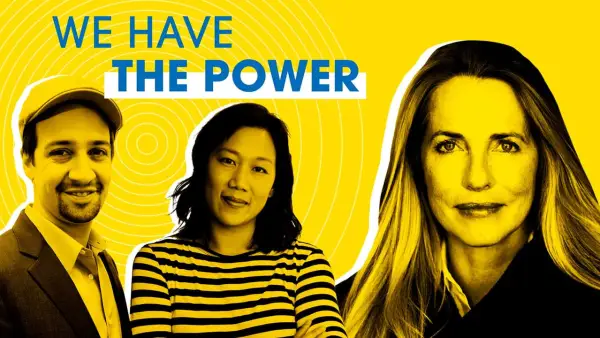
Let’s rethink giving
How can we reimagine philanthropy so that we create a future where there is justice and dignity for all? What are the root causes of the issues and how do we encourage the participation of many and not just a few?
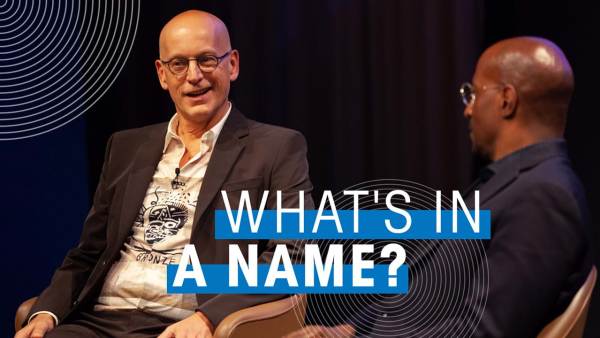
The power of a name featuring Jon Stryker and Van Jones
As a philanthropist, Jon Stryker, president of the Arcus Foundation, believes the act of naming gives power and influence to the work that is supported through his gifts. His philanthropy supports those on the frontlines of justice, providing resources and power to those who need it most.
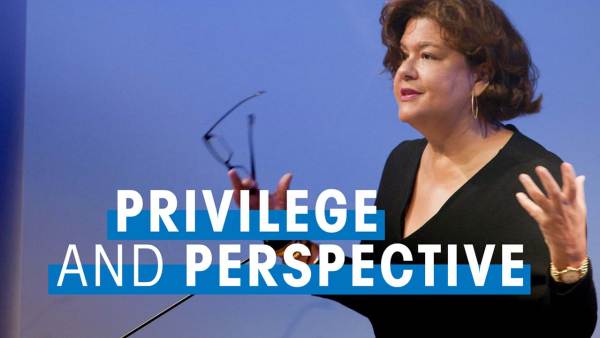
The privilege of perspective featuring Elizabeth Alexander
Elizabeth Alexander, president of the Andrew W. Mellon Foundation, on art, activism, and acknowledging adversity.
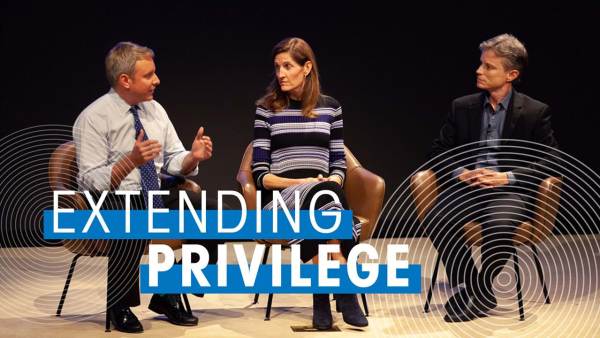
Extending privilege featuring Valerie Rockefeller and Henry Ford III
Henry Ford III, trustee of the Ford Foundation, and Valerie Rockefeller, chair of the Rockefeller Brothers Fund, discuss transforming philanthropy for the 21st century. The families have seen the value of impact investing and believe in partnerships to increase the difference that can be made.
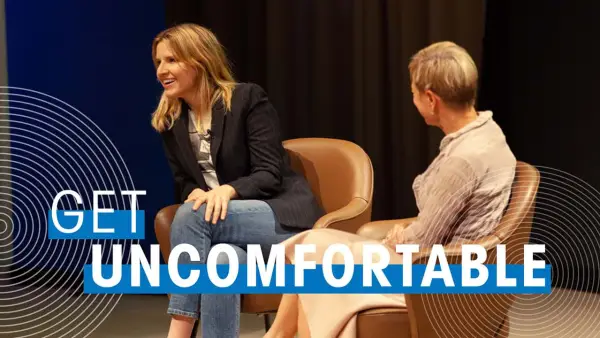
Getting proximate featuring Tara Westover and Hilary Pennington
Tara Westover, author of “Educated,” sees a disconnect between the rural and urban parts of the United States. She believes philanthropists need to be more proximate to the issues they care about, and that spending time with people who aren’t like you is key to disrupting inequality.
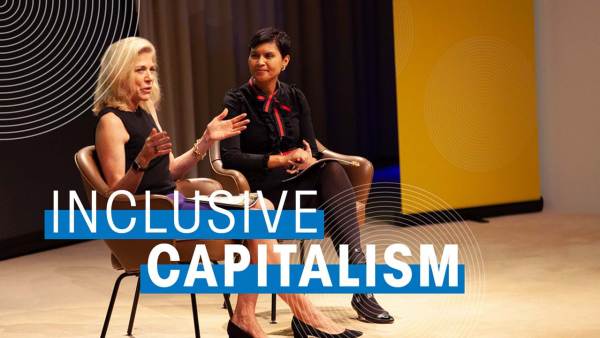
Can capitalism ever really be inclusive? featuring Lynn Forester de Rothschild and Stephanie Mehta
The top 1 percent of the United States controls 42 percent of the national wealth. Lynn Forester de Rothschild, founder of the Center for Inclusive Capitalism, explains that reimagining the economy and making it a sustainable, inclusive system that leads to strong economic growth requires reform.
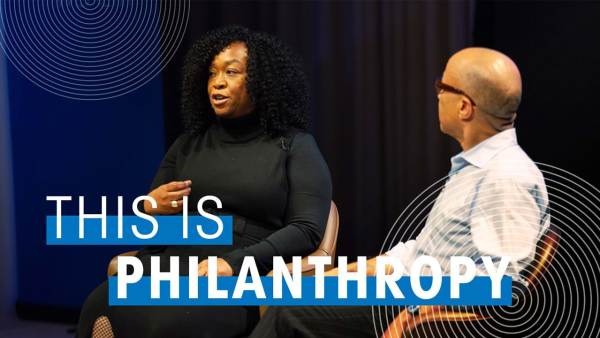
This is what a philanthropist looks like featuring Shonda Rhimes and Darren Walker
Writer and producer Shonda Rhimes has seen the power storytelling has to make change through her work, which centers marginalized people and issues. Rhimes believes philanthropy sets an example others can follow, and says supporting organizations that are already on the ground doing the work is key.
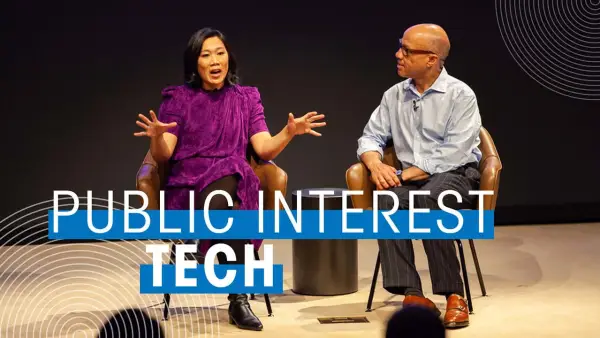
Tech funders changing philanthropy featuring Priscilla Chan & Darren Walker
The top 1 percent of the United States controls 42 percent of the national wealth. Lynn Forester de Rothschild, founder of the Center for Inclusive Capitalism, explains that reimagining the economy and making it a sustainable, inclusive system that leads to strong economic growth requires reform.
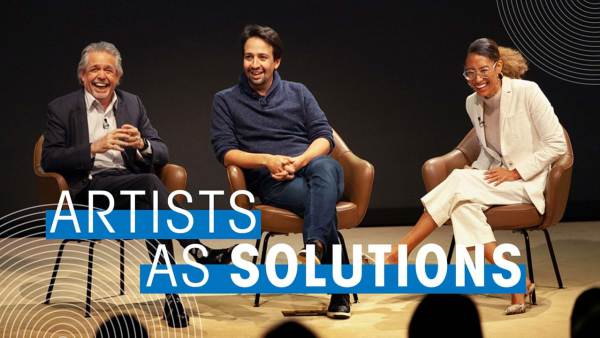
Why artists shouldn’t stay in their lane featuring Lin-Manuel Miranda, Luis Miranda Jr. and Elaine Welteroth
Composer and actor Lin-Manuel Miranda believes all art is political. He and his father, Luis A. Miranda Jr. of the MirRam Group, see the value philanthropy has to empower communities that may have been neglected, and allow them to share their stories through the arts, like Puerto Rico did after Hurricane Maria.
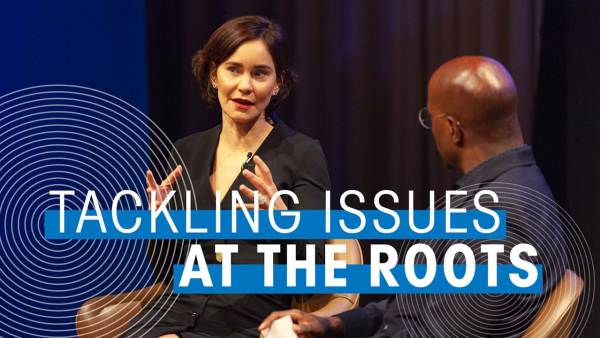
Good philanthropy needs government featuring Laura Arnold and Van Jones
Laura Arnold, co-chair of Arnold Ventures, believes policy change is the lever that will lead to sustainable change. She says we need to attack the systems that are creating the injustices we see, like criminal justice. Philanthropy can create better alternatives that governments can adopt.
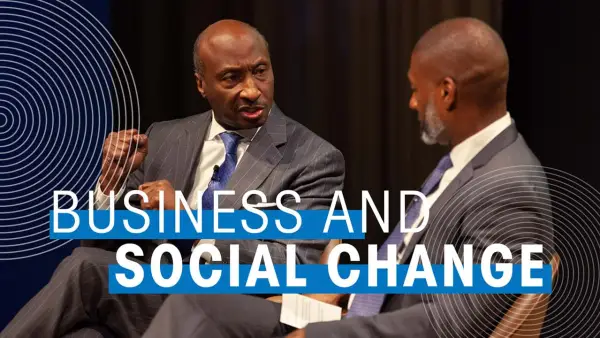
The business of justice featuring Kenneth Frazier and Charles Blow
Kenneth Frazier, CEO of Merck and Co, believes one of the greatest injustices in our society is the health disparities experienced by women of color. A zip code is more likely to determine health outcomes than genetic code. Frazier uses philanthropy to address mortality rate and wants to see more medical personnel listen to their women patients and patients of color.
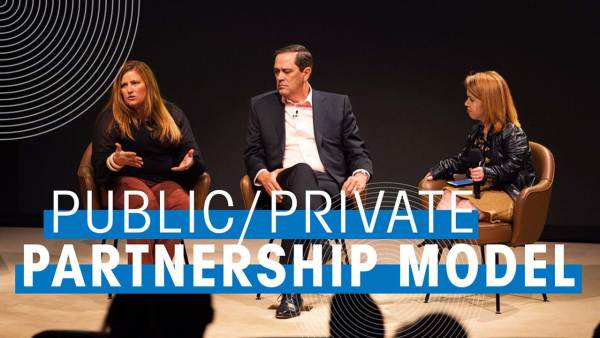
Public-private partnership: A new model for lasting impact featuring Jennifer Loving and Chuck Robbins
Jennifer Loving, CEO of Destination: Home, says a public-private partnership, like the one between her nonprofit and Cisco, headed by Chuck Robbins, can help create a model for the future of philanthropy, and tools like social bonds can help address some of the biggest crises of our time.
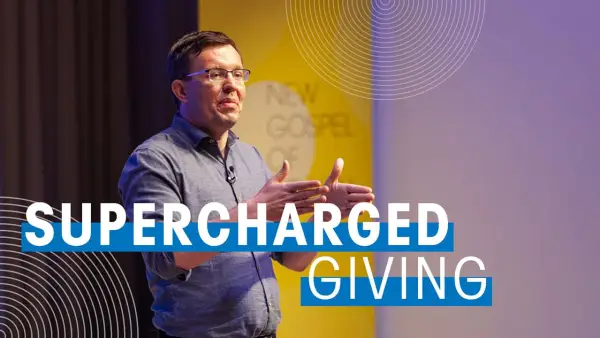
The new power of philanthropy featuring Henry Timms
CEO of Lincoln Center Henry Timms asks how philanthropy can supercharge civic engagement. Timms, who started Giving Tuesday, says trust-based philanthropy needs to shift from generosity to justice, driving more participation from more people, and encouraging meaningful ways to participate and collaborate.
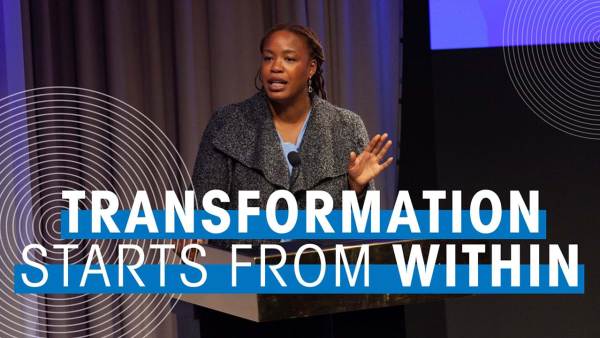
Transforming organizations from the inside featuring Heather McGhee
Heather McGhee, distinguished senior fellow at Demos, shares her experience of working to make the Demos think tank more diverse and led by people of color. Institutional racism, however slight, drives inequality, she says, so transformation needs to be a must-have and not a nice-to-have.
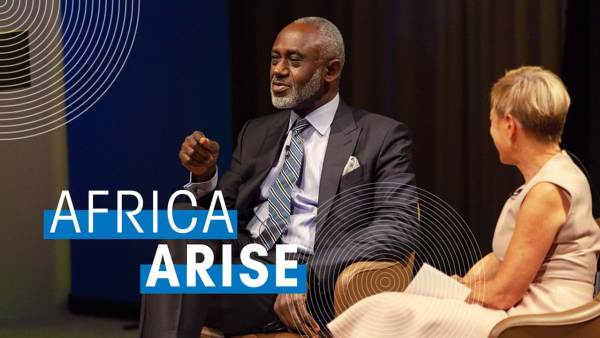
Africa, your time is now featuring Gbenga Oyebode and Hilary Pennington
Ford Foundation trustee Gbenga Oyebode has seen the value of impact investing on the African continent. He believes philanthropy should not just be giving, but investing with a social impact and an economic return. Giving is inherently part of African culture, but needs to be more strategic and collaborative.
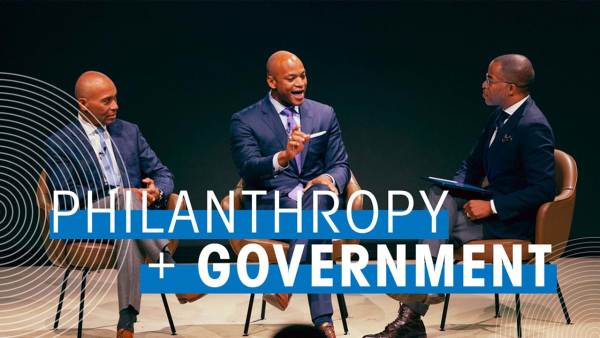
Why good government needs philanthropy featuring Deval Patrick and Wes Moore with Jonathan Capehart
Wes Moore, CEO of Robin Hood, and Deval Patrick, managing director of Bain Capital, see philanthropy working hand-in-hand with government in the fight for equality. Philanthropy can often provide the initial capital needed while government can take over and scale the solution.
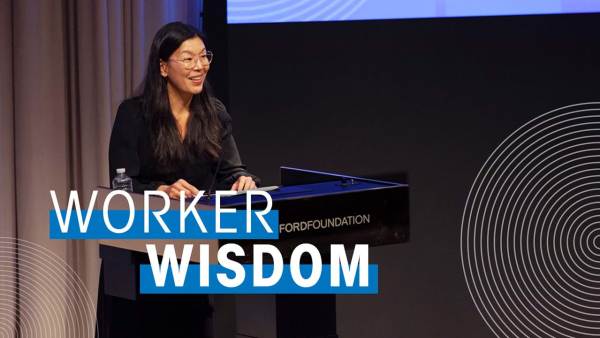
Bringing hidden labor to light featuring Ai-Jen Poo
Ai-jen Poo, executive director of the National Domestic Workers Alliance, says the sector of caregivers and domestic workers continues to grow. Building a future of work that works for all is centered on justice-based philanthropy and not a generosity model.
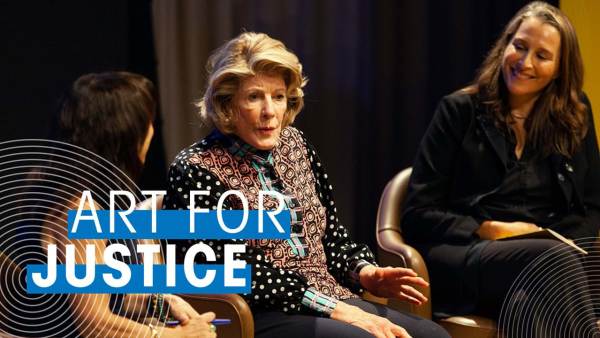
Art for Justice featuring Agnes Gund and Catherine Gund with Maria Hinojosa
The Art for Justice fund was created to help end mass incarceration. Founder Agnes Gund says philanthropy is about addressing issues like this. Catherine Gund believes art has an important part to play in the fight for racial justice and can help change the policies that led to mass incarceration.
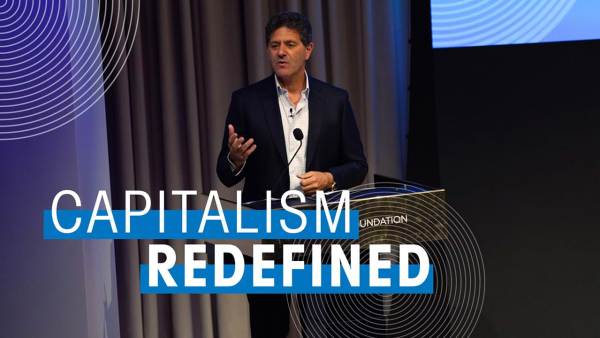
Capitalism redefined featuring Nick Hanauer
Entrepreneur Nick Hanauer asks us to reimagine the economy. He believes we need to change our beliefs about the economy to create a more just, more equitable society for all. By choosing better economic beliefs, we can change society for good.
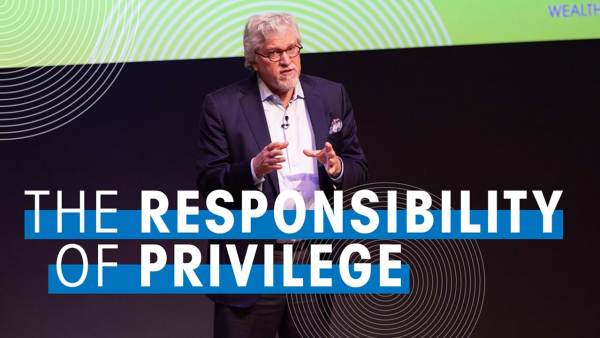
On using power and privilege for change featuring Jeff Raikes
Jeff Raikes, co-founder of the Raikes Foundation, says dismantling racism requires philanthropy to ditch its colorblind approach. People in power need to acknowledge that privilege is invisible to those who possess it. Privilege and power need to be transformed into a force for changing our society for the better.